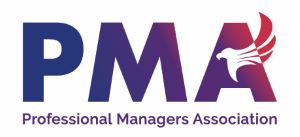
.jpg)
Washington, D.C. –President Chad Hooper of the Professional Managers Association (PMA) - formed in 1981 by IRS Managers as a national membership association representing the interests of professional managers, management officials and non-bargaining unit employees in the federal government- released the following statement regarding IRS employees returning to work:
“As our nation experiences both a public health and an economic crisis, IRS employees have become frontline workers attempting to provide the American people with essential aid and economic relief. While we would unquestionably prefer our members and their staff remain home and safe during this pandemic, we are aware of the reality that the work of IRS managers and their staff, such as work to issue payments under the CARES Act, are life-sustaining measures for millions of Americans and cannot be done entirely remotely,” Hooper said.
“The largest IRS facilities, to which these employees will return, have been unable to open tens of millions of pieces of correspondence which contain payments, tax returns, ID theft claims, and letters requesting assistance. For example, without knowing which of those envelopes contain valid ID theft claims, the IRS is unable to be certain those taxpayers received or will receive their CARES Act stimulus payment,” Hooper explained. “Without the employees being called to serve, customer service operations would remain unmanned, mail rooms would become stockpiles for backlogged taxpayer issues, and fraudsters seeking to take advantage of COVID-19 chaos may succeed. The question is not if employees should return to do this work, it is determining the safest method for their return to take place.”
“The IRS has requested some 11,000 employee’s voluntarily return to work to meet this urgent need. While the initial email from the IRS Human Capital Office noted that the Service may not be able to provide all workers with Personal Protective Equipment (PPE), the IRS informed PMA late Friday that the Service was able to work with a contractor to obtain a supply of 3-ply surgical masks, disinfectant, and hand sanitizer for the employees returning to work. Given the supply chain issues and hundreds of locations from which the IRS operates, it will likely take additional time and efforts to ensure every facility is properly stocked with PPE. By allowing employees to bring their own PPE, Commissioner Rettig is ensuring that those willing to come to work are protected either with their own equipment or equipment provided,” Hooper continued.
“Furthermore, by requesting volunteers before requiring any IRS employees to return to work, Commissioner Rettig is ensuring that only those who consider themselves most able, low-risk of infection, eager to work, and, likely, able to access PPE come into the office. During this time, the previous IRS Facility Evacuation will continue to be in effect preventing remote eligible individuals from entering facilities. In accordance with OPM guidance, any employee meeting the CDC high-risk criteria will not be required to return. In accordance with CDC guidance, Commissioner Rettig also made the decision to require face coverings for all employees returning to work. We applaud this decision as the best way to ensure both employees and taxpayers are safe from unintended transmission of COVID-19. Even in states and local municipalities where governments have not chosen to require face coverings in public at risk to their citizens, we appreciate knowing that all IRS employees will be using them,” Hooper explained. “Finally, individuals returning will receive retention pay for at least two pay periods with increased pay based on the risk level of their role. This is critical for incentivizing able employees to return to their offices and work in unprecedented conditions to serve the taxpayer.”
“A volunteer, well-prepared, and well-compensated workforce reentering IRS facilities is ideal; however, concerns still loom. IRS guidance provided little clarity for how managers should handle employees who fail to adhere to CDC guidelines, if employees will need to remove their face coverings for guards to enter into facilities, and if PPE will be provided for a meaningful duration. Additional guidance is necessary so managers are not placed in the impossible circumstance of managing workforce health matters on top of their job duties. Inevitably, employees will look to their managers for guidance and managers must be the first to receive further guidance on the implementation of these office reentries and handling these 11,000 employees,” Hooper furthered.
“The IRS is doing the best it can with limited resources in an unprecedented situations. In many ways, we have no other choice but to ask employees to voluntarily return to support our nation. As always, the committed and dedicated employees of the IRS will answer the call. To ensure these employees are able to most effectively assist taxpayers and protect their health, managers must receive additional guidance so they can pass healthy and safe practices along to their workforce,” Hooper concluded.